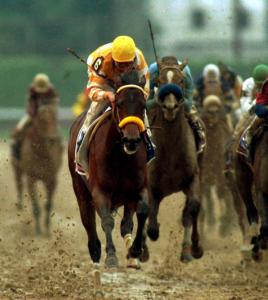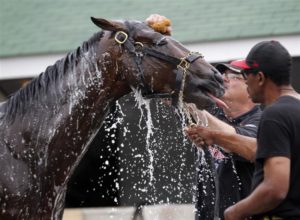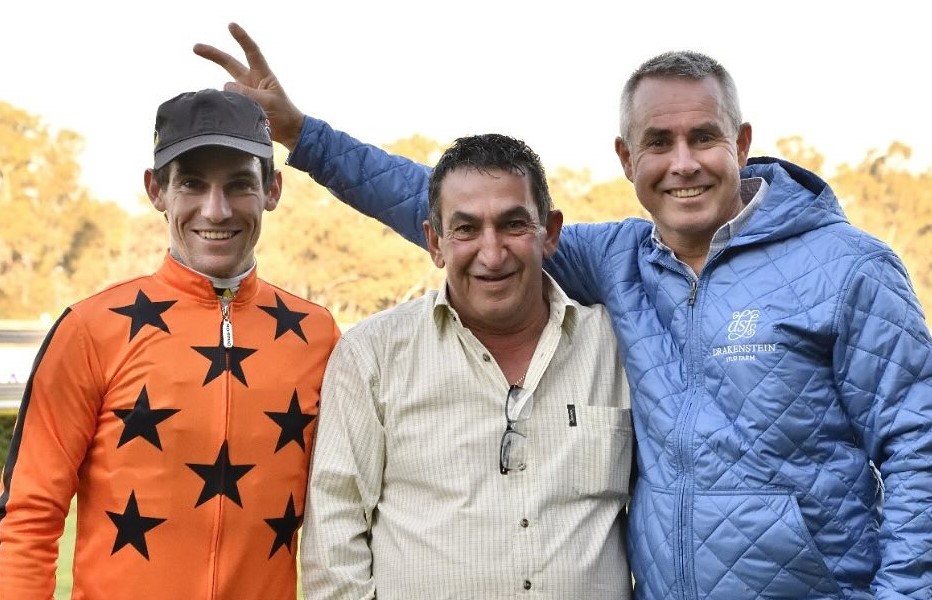
Robert Bloomberg – hope for the future
A South African horseracing legal expert has hailed a landmark finding by a Kentucky Court, saying that he hoped other racing jurisdictions would soon follow suit and adopt the judgment
“We’ve been on about the ‘strict liability’ rule for years as well as the disclosure of quantitative analysis,” said Attorney Robert Bloomberg when approached for a comment on the judgement.
Bloomberg was reacting to the findings in favour of trainer Graham Motion that the strict liability rule applied by the Kentucky Horse Racing commission is unconstitutional.
“It stands to reason that if you have no knowledge, played no part and can give a perfect valid explanation as to why a miniscule quantity of a prohibited substance showed up, whether through the environment or otherwise – or even if you can’t, but can show that the quantity detected can have no pharmacological affect on a racehorse and further that the racing authority, apart from the lab result have no other direct evidence, then why should you be found ‘guilty’ due to an archaic, unfair and unjust rule?” said Bloomberg.
While South African trainers are united via their various regional associations, it would take fairly deep pockets to fund an Application to the Constitutional Court – notwithstanding the fact that a costs order would be granted, if successful. We live in hope that a benefactor may yet step forward to fund a move to have the rules amended.

Bill Finley writes in the Thoroughbreddailynews.com that a Kentucky court has ruled in favour of trainer Graham Motion and owner George Strawbridge, tossing out the penalties assessed by the Kentucky Horse Racing Commission after their horse Kitten’s Point (Kitten’s Joy) tested positive for the medication Methocarbamol following her win in the Gr3 Bewitch S. in 2015 at Keeneland. Franklin Circuit Court Judge Thomas Wingate justified his decision, in part, on his finding that the “KHRC’s creation of an ‘absolute insurer rule’ for trainers is unconstitutional.”

That portion of the ruling could mean the beginning of the end of the trainer responsibility rule. The rule is a long-standing provision in American racing that whenever a horse tests positive for an illegal medication or drug, the horse’s trainer, no matter the circumstances, is responsible and subject to penalties.
“The court held that Kentucky’s absolute insurer rule is unconstitutional, that if you are going to fine somebody, disqualify their horse, take away purse money, you have to give them the right to defend themselves,” said Motion’s lawyer Craig Robertson. “And if you have a rule that imposes strict liability that says ‘if there is medication in your horse, it’s your fault, period,’ then that’s not constitutional. You have to allow the trainer to be able to offer reasons as to how and why that medication got into the horse’s system and that it was not his or her fault. That’s the broader implication of this ruling that can impact every single medication violation in Kentucky going forward.”
 Marc Guilfoil, the executive director of the KHRC, said the commission will look into what course it may take.
Marc Guilfoil, the executive director of the KHRC, said the commission will look into what course it may take.
“We are evaluating the opinion and the order issued by Judge Wingate in the Graham Motion case and are in the process of evaluating all legal options,” Guilfoil said.
Ed Martin, the president of Racing Commissioners International, said he would withhold comment until reading and analyzing the court’s ruling.
 For now, the Motion decision only affects cases involving trainers in Kentucky, but Robertson said that may not be the case for long.
For now, the Motion decision only affects cases involving trainers in Kentucky, but Robertson said that may not be the case for long.
“As of right now, it’s a Kentucky ruling, so it’s only binding in the Kentucky courts,” he said. “That being said, we as lawyers oftentimes argue that, ‘Hey, this other state has done something, you should do it here too.’ That can be a persuasive argument. If I were hired to defend a trainer in New York, Florida, California or any other state and they had an absolute insurer rule similar to Kentucky’s, I would argue to them, ‘Look at what the Kentucky courts have done, you should do the same thing in your state.’”
When asked if the Kentucky decision could eventually lead to the end of the absolute insurer rule in all states, Robertson replied: “It could.”
Motion’s attorney believes that modern drug testing has become so good that it has changed the narrative when it comes the rules regarding trainers and medication positives.
“We’ve gotten this to this point where the testing is so fine and you can test at such minute levels,” he said. “For example, in this case, the threshold was set at one nanogram for Methocarbomol, which is one billionth of a gram. Twenty years ago you couldn’t test at these low levels and now they’ve gotten to the point where they’re able to test at such low levels, it makes things such as environmental contamination much more problematic. Twenty years ago, if you got a medication overage, there was a whole lot of the stuff in the horse’s system. The law has to change along with the times.”

Methocarbamol is a muscle relaxant that works by blocking nerve impulses or pain sensations that are sent to your brain, and it also prevents cramping.
The court’s other justification for throwing out the penalties handed down by the KHRC was its contention that the threshold levels for the particular drug were arbitrary and capricious, and that the commission was not able to come up with any science to prove that such low levels of the medication could improve a horse’s performance.
“You have to have science behind something like this,” Robertson said. “You just can’t arbitrarily pick a threshold level out of the air.”
After Kitten’s Point tested positive, Motion was hit with a relatively light penalty, a $500 fine and a five-day suspension. Robertson commended his client for refusing to accept the penalties and waging what turned into a two-year fight.
“In the grand scheme of things, most trainers would have accepted the punishment, even if they felt they had done nothing wrong, and just moved on,” he said. “Instead, this was two years of litigation and involved a lot of money in legal fees and an emotional toll. But Graham felt very strongly about his reputation. He wanted to defend it and he wanted to stand up for all horsemen, because not everyone is in a position to challenge something like this.”








